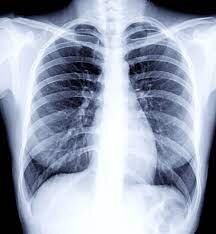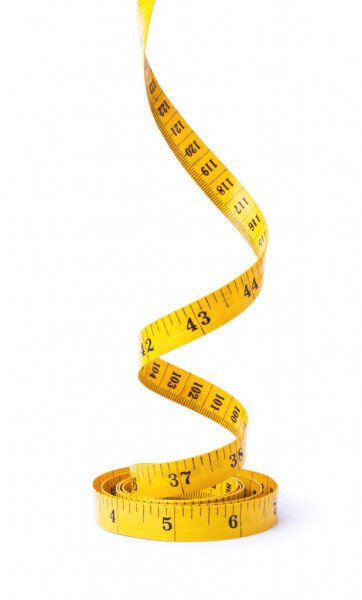Consequences of Fat Shaming by Health Care Providers
Fat shaming seems to go hand in hand with so-called “concern for health.” Those living in bigger bodies are often subject to abuse ranging from rude stares to comments about their food choice and body size.
Sadly, some of the worst fat shaming comes from those who we pay to help us -- medical professionals. These well-meaning (or not) professionals have been reported to make negative comments about a patient’s weight, pressure patients to lose weight, and even dismiss worrying symptoms as mere byproducts of body size. While this is not only bad medicine, it is highly irresponsible.
But that does not stop those medical professionals who do not reflect on the consequences of their behavior, or who simply think they know better than others (including you, the patient).
Body-Shaming by Medical Professionals Happens Every Day
On February 2nd, 2021, actress and singer Amanda Lee [@mandapaints] posted a tearful video to her TikTok, and later to her Instagram, in which she explained how doctors dismissed her complaints of painful abdominal cramping. After considerable effort, she was finally referred to a gastrointestinal (GI) doctor, and she looked forward to help from a specialist. However, when she told the GI doctor that the abdominal cramping had become so bad, she was unable to eat, the doctor unabashedly replied, “That’s not such a bad thing.”
No surprise this was deeply upsetting. After calming down in her car, she went back and demanded an apology from the doctor. The doctor apologized but said he was unable to be her doctor because she didn’t understand his “blunt humor.” Lee has since gone on to report this doctor for his conduct, and was later diagnosed with colon cancer by a different, non-fat-shaming GI doctor.
Lee’s story is merely one of thousands. In a 2009 study carried out by the North American Association for the Study of Obesity (NAASO), close to 2500 “overweight” women were surveyed and asked about their experiences. The study “found that 53% reported receiving inappropriate comments from doctors about their weight.” In addition, the women cited doctors as the “second most common source of weight stigma.”
This is astounding, that medical professionals are the second most common source of fat shaming in a woman’s life! Over half of the women reported repeat offenses!
Weight Stigma Can Be Life Threatening
Weight stigma in the medical field can have dangerous ramifications. Women are not diagnosed with chronic, sometimes even deadly, conditions, merely because their doctors attributed their symptoms to their weight.
Dr. Scott Kahan M.D. of John Hopkins University said, “A patient of mine once went to urgent care short of breath only to be told that it was because she had ‘too much fat on her chest’. Later, at the emergency room, they discovered she had a pulmonary embolism and needed anticoagulants. She’s lucky to be alive.”
Kelly Coffey, the writer of the article “Weight Bias and Health Care” in Self magazine was herself shamed at 17 years old, and her doctors wrote off her excruciating cramps to her weight. “Twelve years ago, after I lost over 150 pounds, I started to treat my body with care and take my health seriously. A doctor listened to me and discovered I had endometriosis, a condition that had gone undiagnosed for almost 20 years.”
Scoliosis, cancers, slipped discs, broken bones -- all of these conditions and more have been written off, with weight loss being the ignorantly prescribed cure-all. And just so we’re clear: these conditions cannot be cured by losing weight.
Faulty Assumptions Contribute to Weight Stigma
One of the reasons for this stigma lies in the use of BMI, or Body Mass Index, by professionals. According to the National Heart, Lung, and Blood Institute, BMI, created by mathematician Lambert Adolphe Jacques Quetelet in the 19th century, is “a measure of body fat based on height and weight that applies to adult men and women.” However, the system itself is littered with issues. It doesn’t take into account bone, fat or muscle densities in proportion to mass, nor does it add/subtract variables such as disabilities, like a lost limb, nor does it account for water weight, or even gender. There are also only three categories of weight under BMI, separated by mere decimal points: underweight, normal weight, and “overweight”. How can a decimal point make the difference between “normal,” and “overweight?’
NPR has a wonderful example of the logic behind using BMI as a measure of health: “If I tell you my birthday present is a bicycle, you can conclude that my present has wheels. That's correct logic. But it does not work the other way round. If I tell you my birthday present has wheels, you cannot conclude I got a bicycle. I could have received a car. […Likewise,…] if a person is fat or obese, he or she will have a high BMI. But as with my birthday present, it doesn't work the other way round. A high BMI does not mean an individual is even overweight, let alone obese. It could mean the person is fit and healthy, with very little fat.”
But BMI is treated as a gold standard in medicine, further contributing to faulty beliefs about body size.
But still, even if a person has more fat on their body, that is not a guarantee of ill health, nor does weight loss necessarily improve health. And being thin doesn’t make a person a beacon of health, and weight loss does not necessarily confer health benefits.
And seemingly good advice of, for instance, weight loss before knee surgery, is not good advice as the study at this link shows.
But one thing is guaranteed. Fat shaming will keep women and men away from medical care as they attempt to avoid bashing and unwarranted comments. Women and men of ALL sizes have told me they are afraid of going to the doctor for fear of weight comments and feeling badly.
Some Doctors Get It
This is not to say that doctors are not learning. There are several doctors who have been quite vocal about the impact of weight stigma, my personal favorite being Dr. Joshua Wolrich MBBS MRCS [@drjoshuawolrich].
Dr. Joshua Wolrich
In a recent post, he discussed the Health at Every Size Movement, saying “Healthcare tends to follow what is known as a weight-normative approach, where a focus on weight and weight loss is used to try and define health and well-being. I, however, believe in a weight-inclusive approach. This means we should be acknowledging the real impacts of weight stigma and be fighting to get rid of it, acknowledging that health and well-being is incredibly multifaceted and the link between health and weight is nowhere near as straight-forward as people make it out to be, and we should stop indiscriminately advising weight loss to our patients when we have no guarantee that is going to a) improve their health or b) sustainable in the long term.”
There is a push (albeit a small push, but it is there) for diversity training in the medical field in regards to weight and weight stigma, and more and more fat-shaming doctors are being called out and held accountable for their behavior.
Hopefully, with a more open discussion about the impact of weight stigma in the medical field, people will feel more comfortable reaching out for medical care without fear of being shamed for weight or body size, and as a result, can get the care they need and deserve.
So What Can You Do?
Request not to be weighed or to have your weight not openly displayed on your chart.
If requesting doesn’t feel strong enough or feels too nice, I recommend you flat out refuse to be weighed. I do. Weight is just one factor looked at, and a good doctor can work without it. However, there are situations where your weight is needed: for instance, if you are going to have anesthesia (where the medications administered are weight dependent, or if a prescribed medication is weight dependent (which they rarely are).
Request the same test that a thin person would get with your condition. And request tests that you have researched and know to be used for others with your condition, or suspected condition. If the doctor refuses, ask him or her to put in writing the tests you were denied. Then ask for a copy of your medical record. Let the doctor know you keep your own medical record (have a notepad with you), and ask him to spell out the name of the test so you make sure you have it right, and then ask him his reason to not give it to you so that you can record that. Doctors have been known to change their minds quickly.
Explain your background: Are you recovering from an eating disorder? Do you not want to lose weight? Unfortunately, many medical professionals completely ignore these comments. I’ve been told by clients’ horror stories of medical staff continuing to discuss weight even when asked not to. Again, feel free to refuse to weigh!
Report fat-shaming doctors. At Nutrition Therapy Associates in Gainesville FL, we keep a list of medical providers who have shamed our clients, along with what they said (which we keep private, but use for our clients). We also keep a list of medicals providers who have been reported to not appear fat prejudiced that you can access. (Add link)
Find a new doctor. Then gleefully fire your current doctor!
Be your own advocate! And know you are not alone. Read stories from others who have suffered abuse from fat shaming medical providers, and what they did about it.
Regardless of whether you exist in a bigger or smaller body, you deserve to receive the same treatment as anyone else. Do not allow your symptoms to be written off due to weight stigma and preconceived prejudices. Watch out for doctors who subscribe to this way of thinking. Weight is not a clear indicator of health, and it’s important to understand this concept and to seek out doctors who do as well.
References
Calculate your BMI - Standard BMI Calculator. (n.d.). Retrieved February 28, 2021, from https://www.nhlbi.nih.gov/health/educational/lose_wt/BMI/bmicalc.htm
Coffey, K. (2017, July 18). The shocking ways large women are mistreated by health care providers. Retrieved February 28, 2021, from https://www.self.com/story/weight-bias-and-health-care
Devlin, K. (2009, July 04). Top 10 reasons why The BMI is bogus. Retrieved February 28, 2021, from https://www.npr.org/templates/story/story.php?storyId=106268439&t=1613921207295
McNamara, B. (2018, April 19). These people described what it's like to get fat-shamed by doctors. Retrieved February 28, 2021, from https://www.teenvogue.com/story/people-described-fat-shaming-by-doctors
Puhl, R. M., & Heuer, C. A. (2009). The stigma of obesity: A review and update. Obesity, 17(5), 941-964. doi:10.1038/oby.2008.636
Sindhu, K., & Reddy, P. (2019, August 25). When doctors fat-shame their patients, everybody loses. Retrieved February 28, 2021, from https://www.nbcnews.com/think/opinion/when-doctors-fat-shame-their-patients-everybody-loses-ncna1045921
About Eating Wisdom and Drs Karin and Hannah
We are two PhD level Registered and Licensed Nutritionists whose passion is to help others escape diet culture and to learn to use their natural, innate Eating Wisdom to, finally, find peace with food, eating and weight.
Check out our course, Intuitive Eating: How to Escape Diet Culture and Become an Empowered Eater,. plus we have lots of info and handouts (including the original Hunger Fullness Scale) at our website, www.EatingWisdom.com. We also offer 1:1 nutrition therapy. Take advantage of our combined 40+ years of experience and reach out today!
© 2021 Karin Kratina, PhD, RD, LDN



















